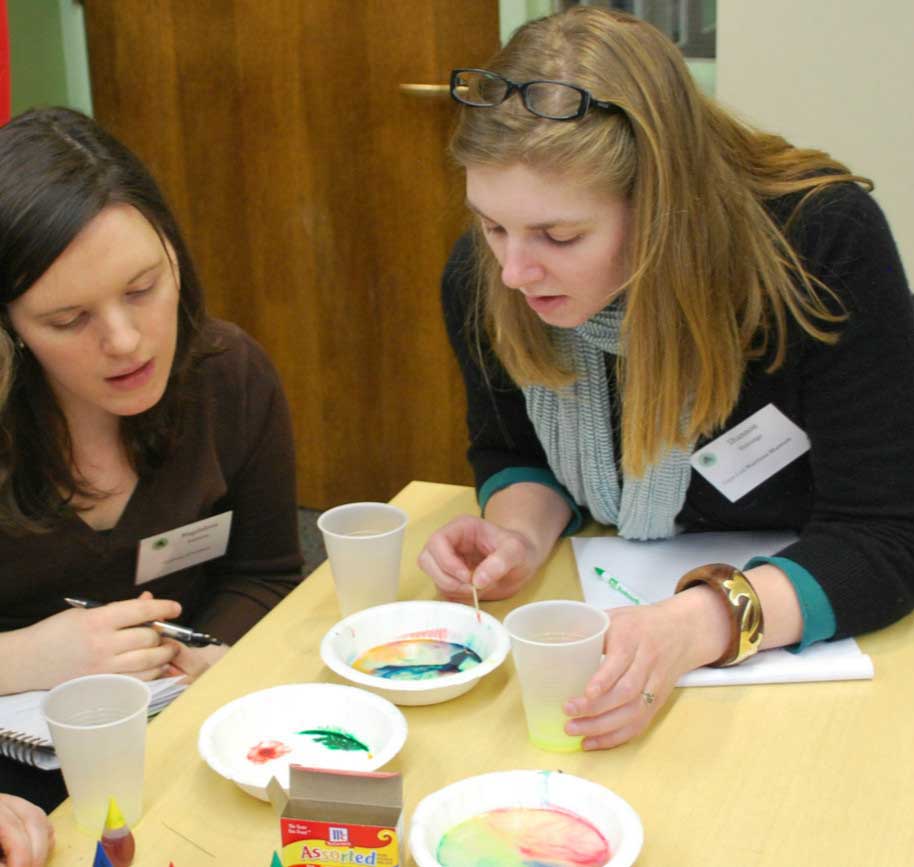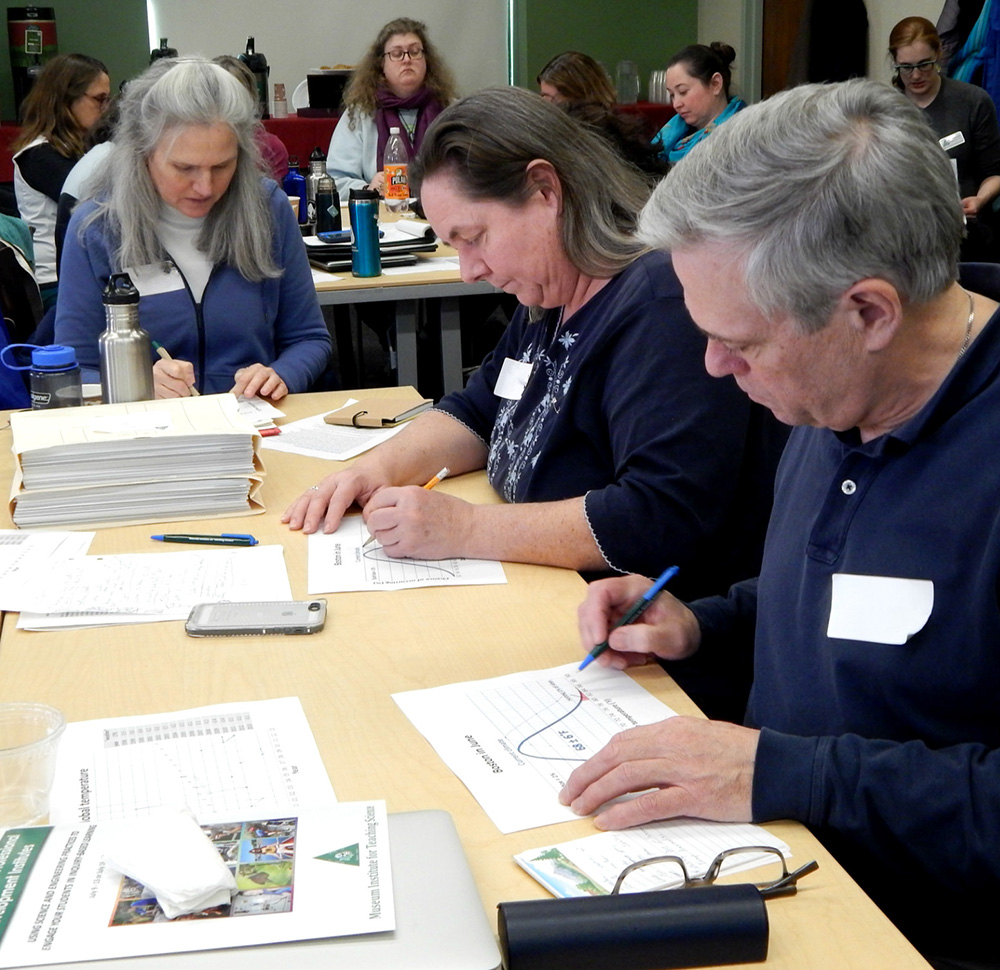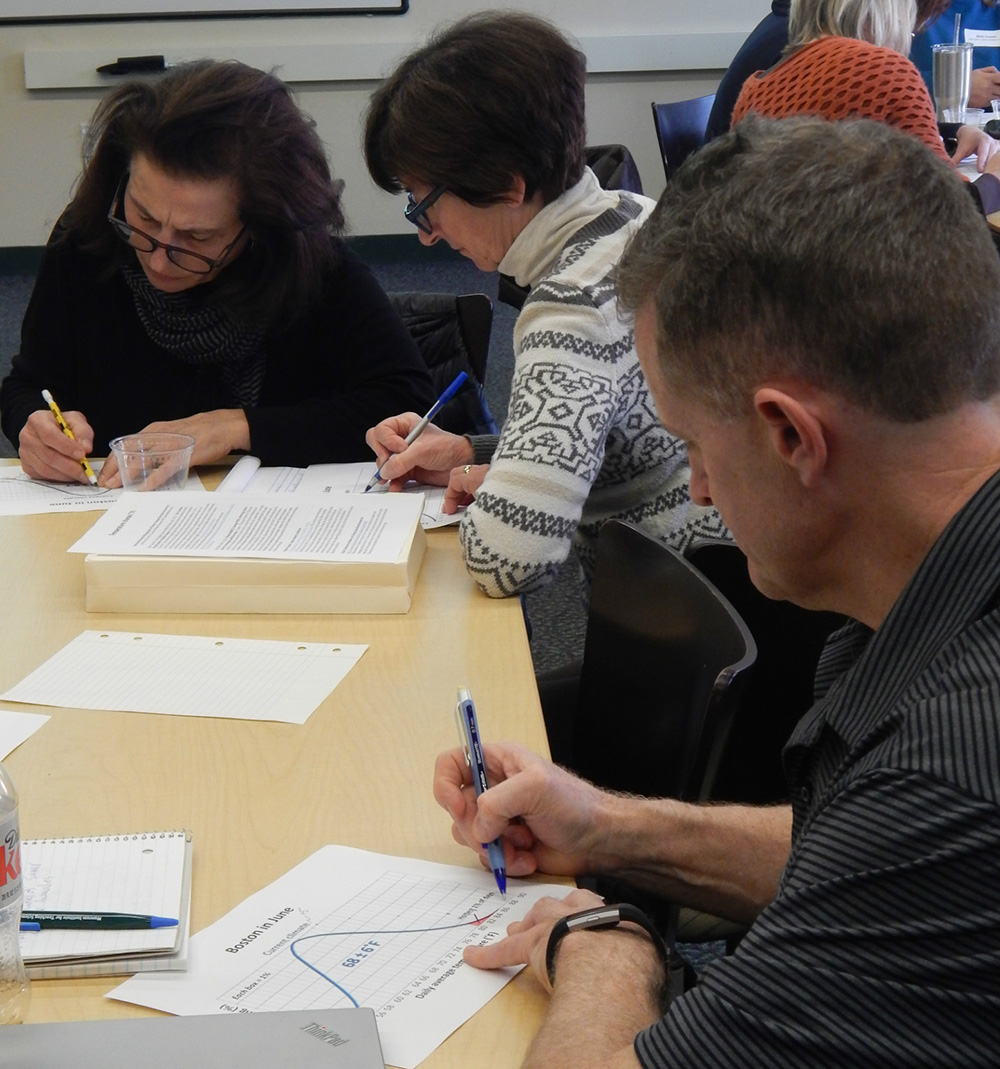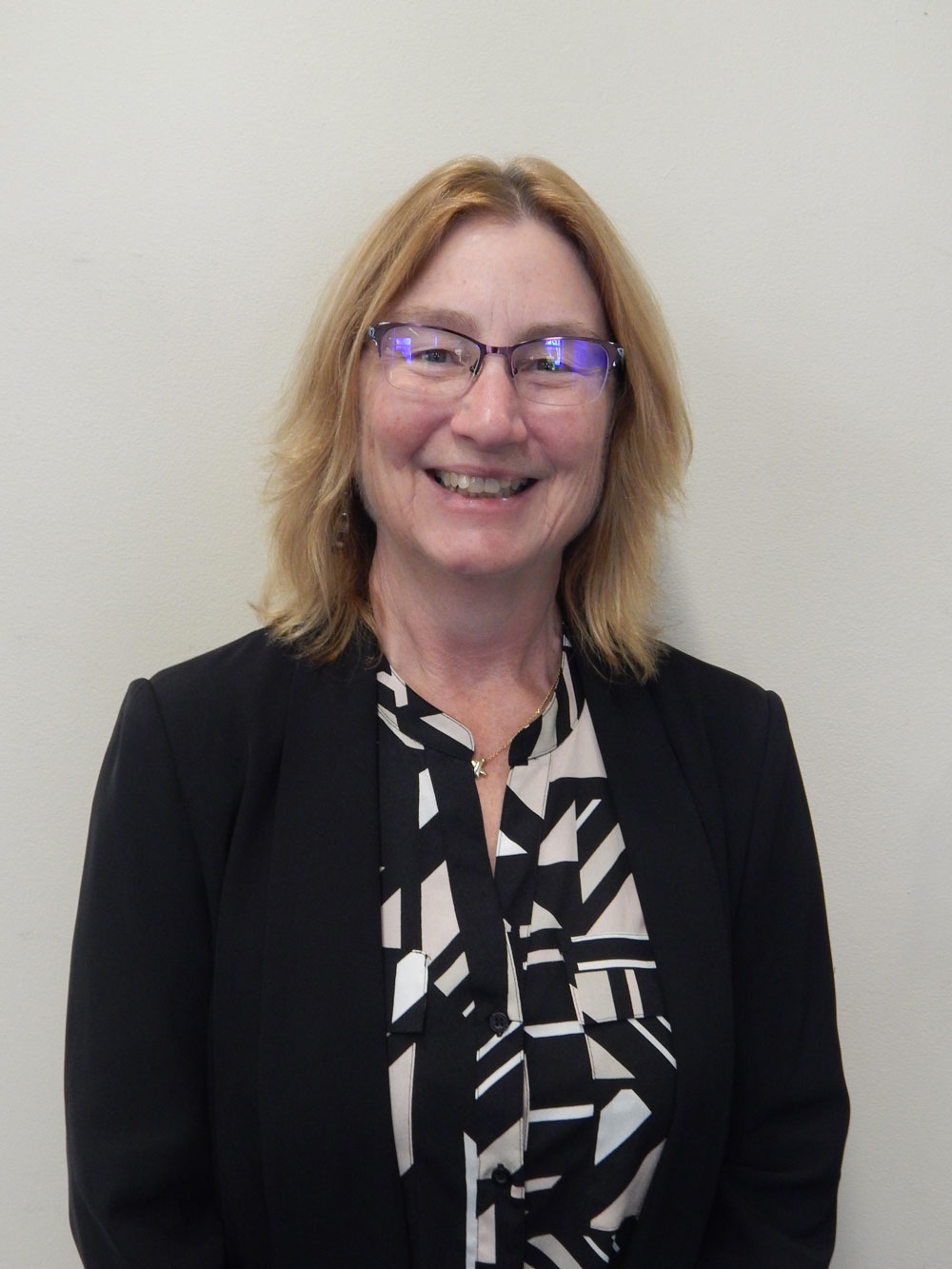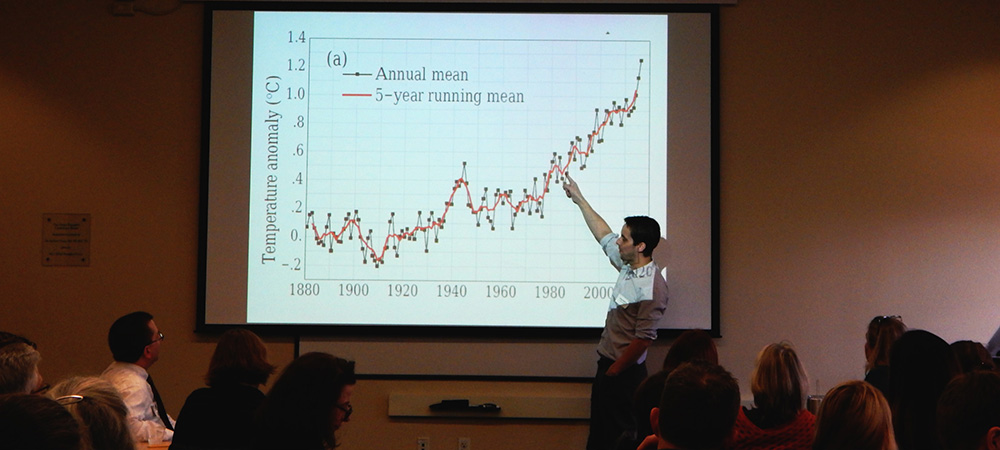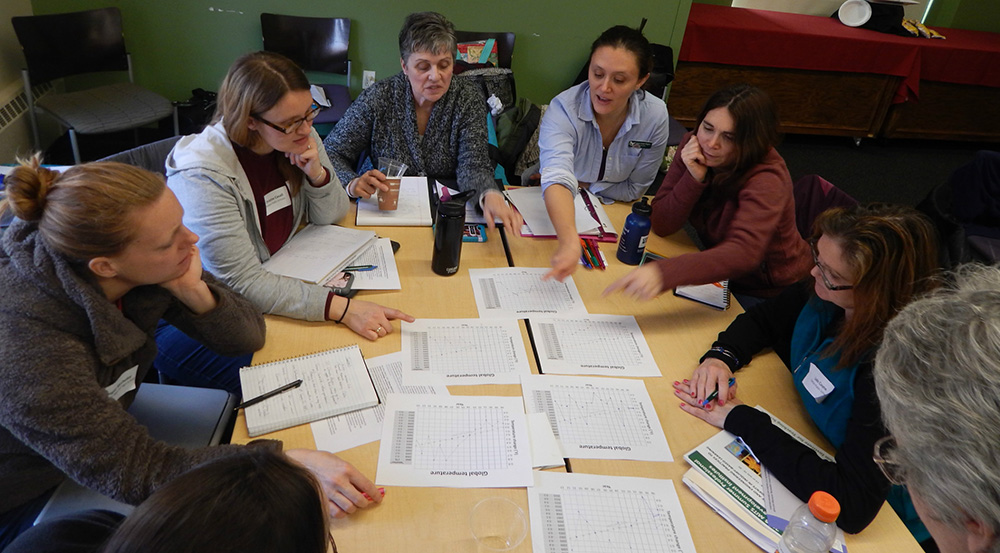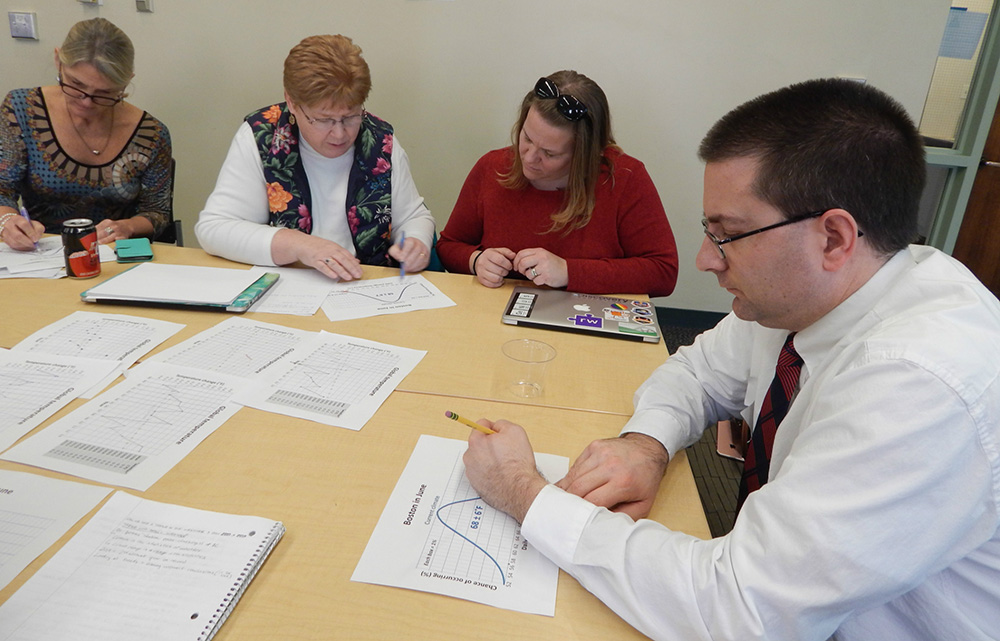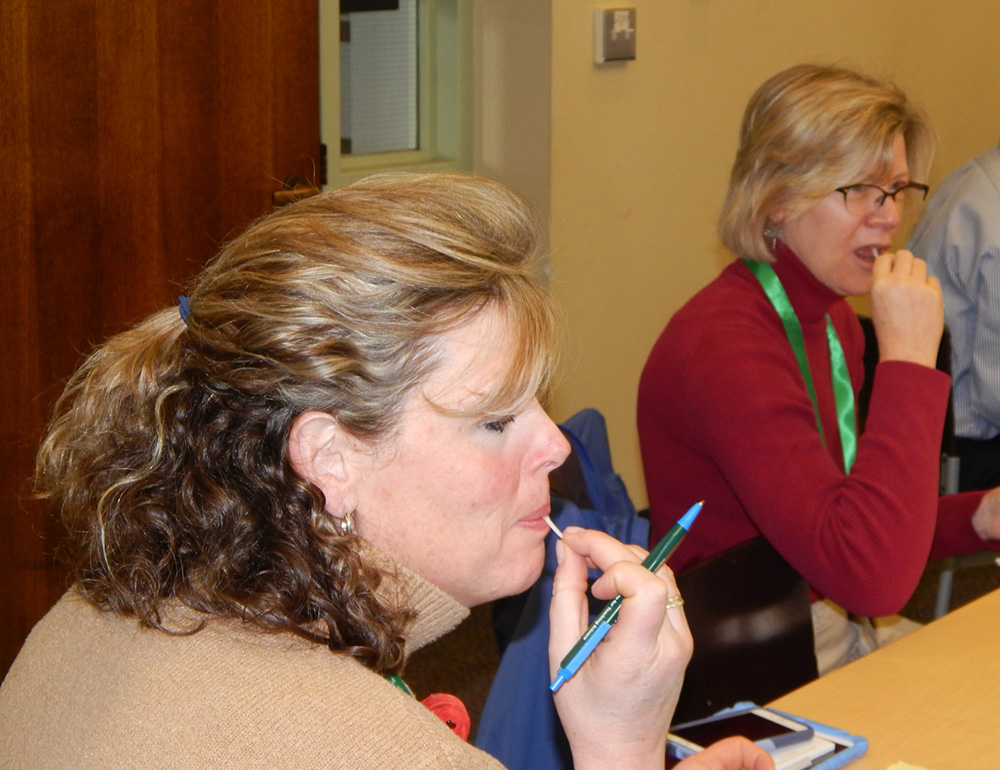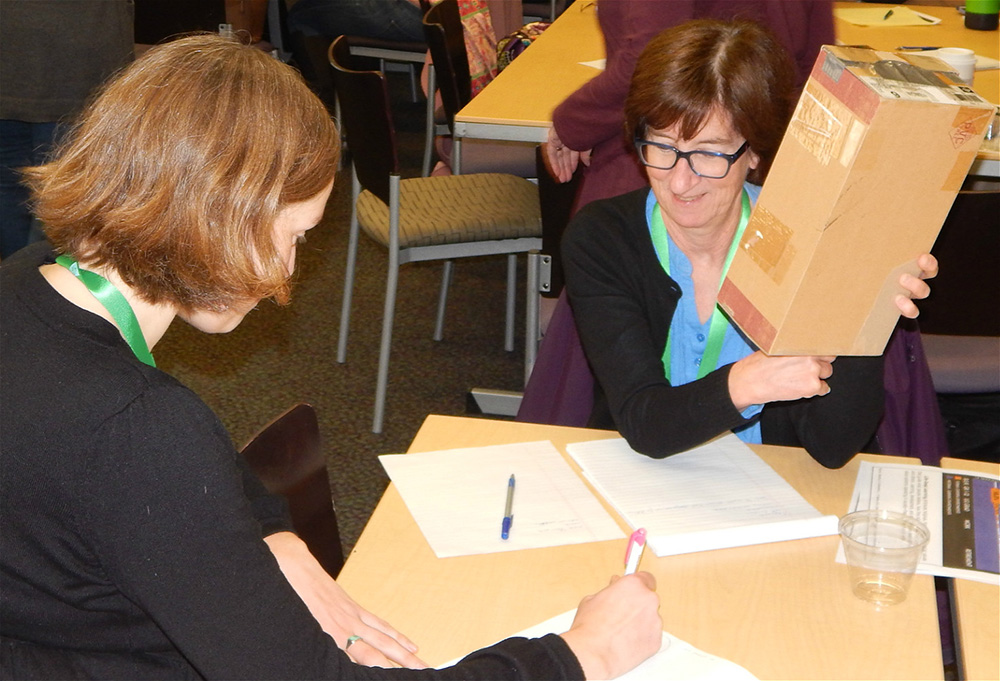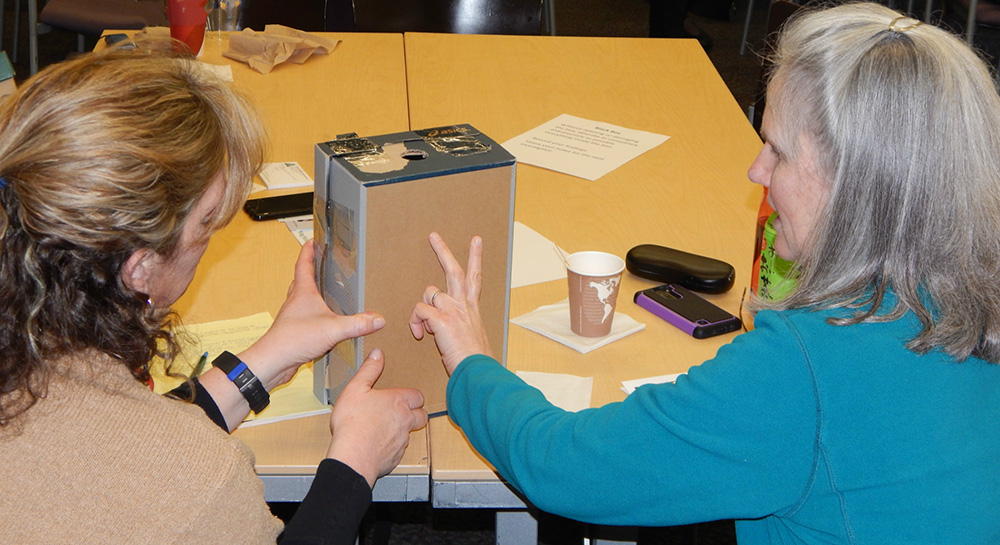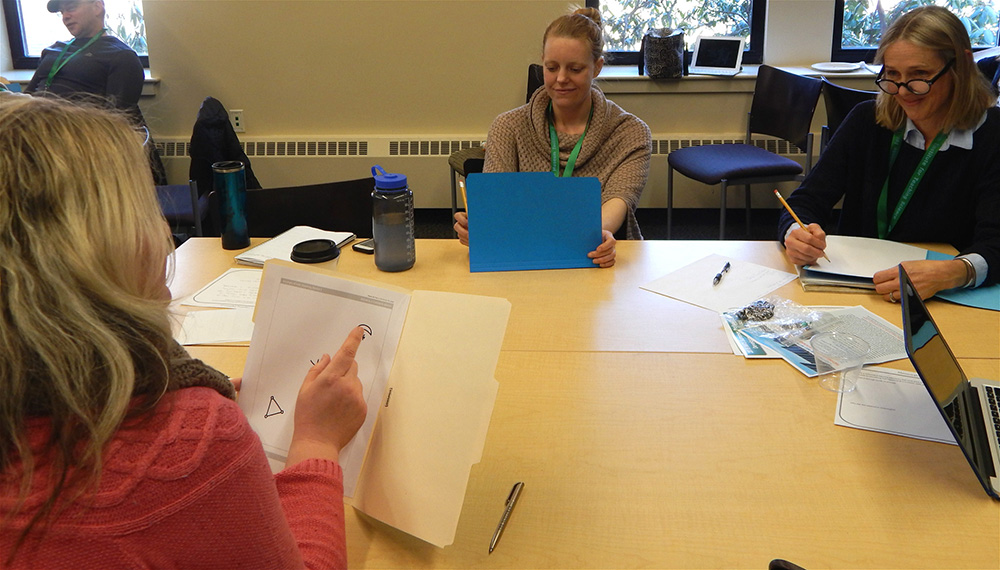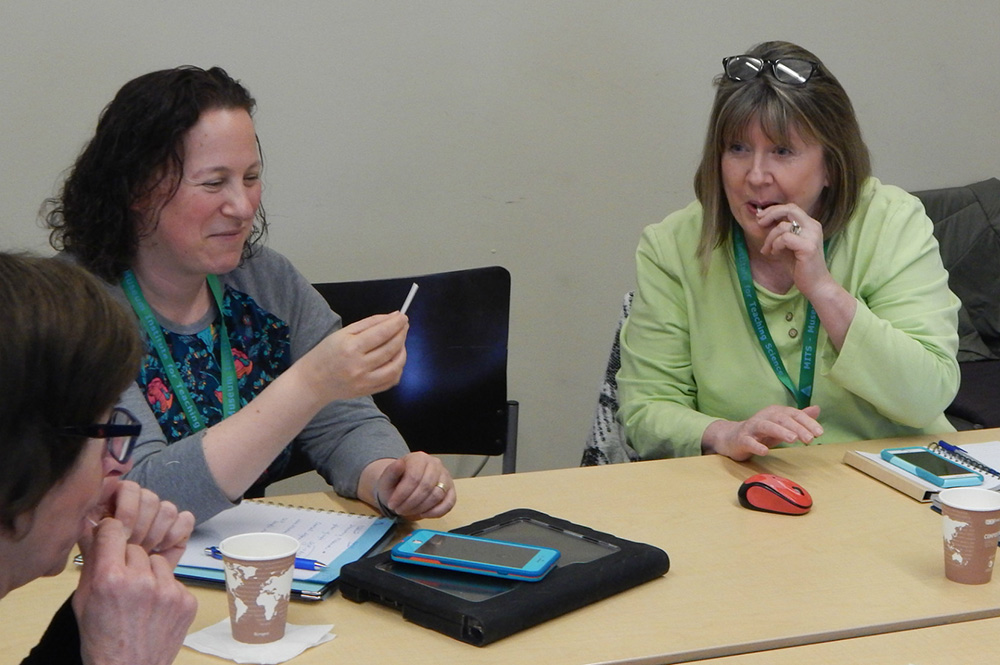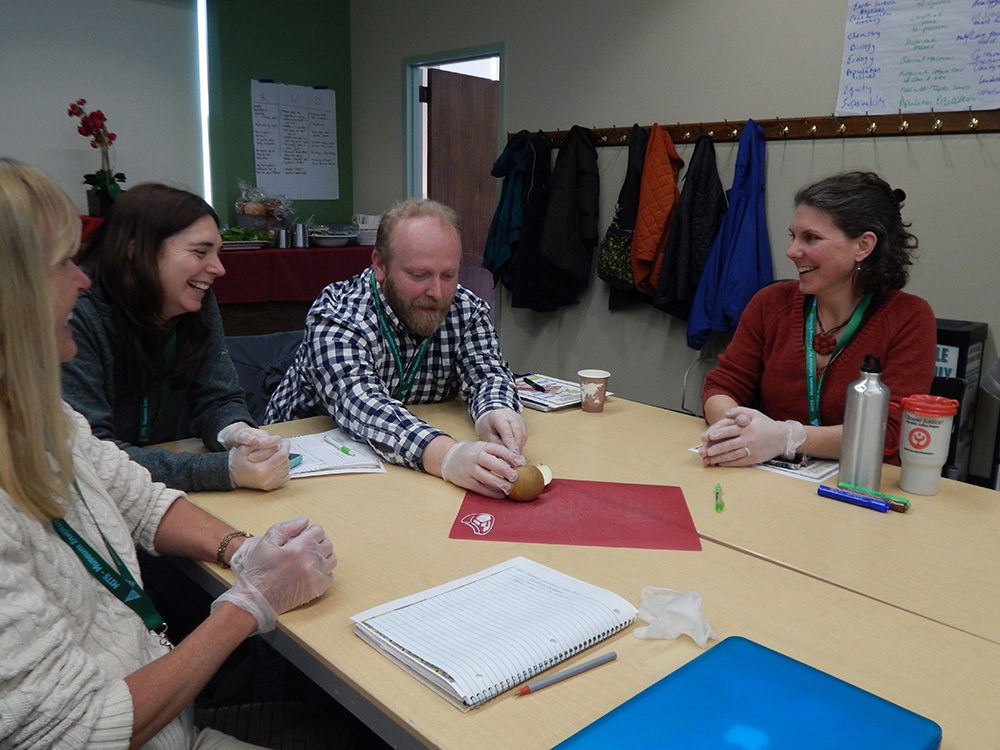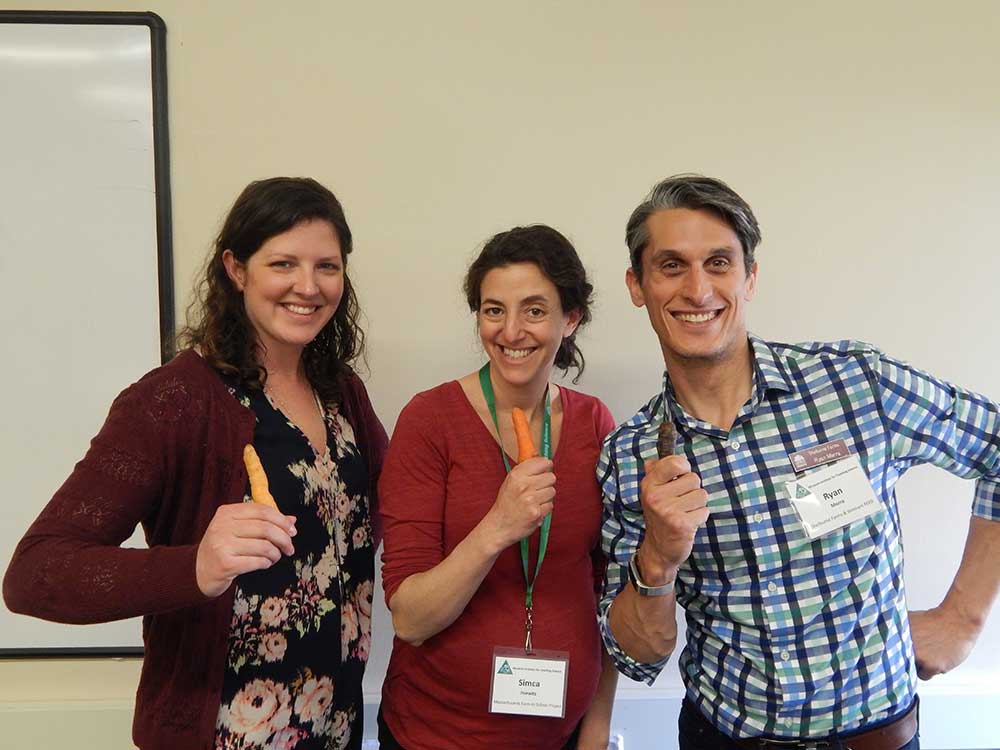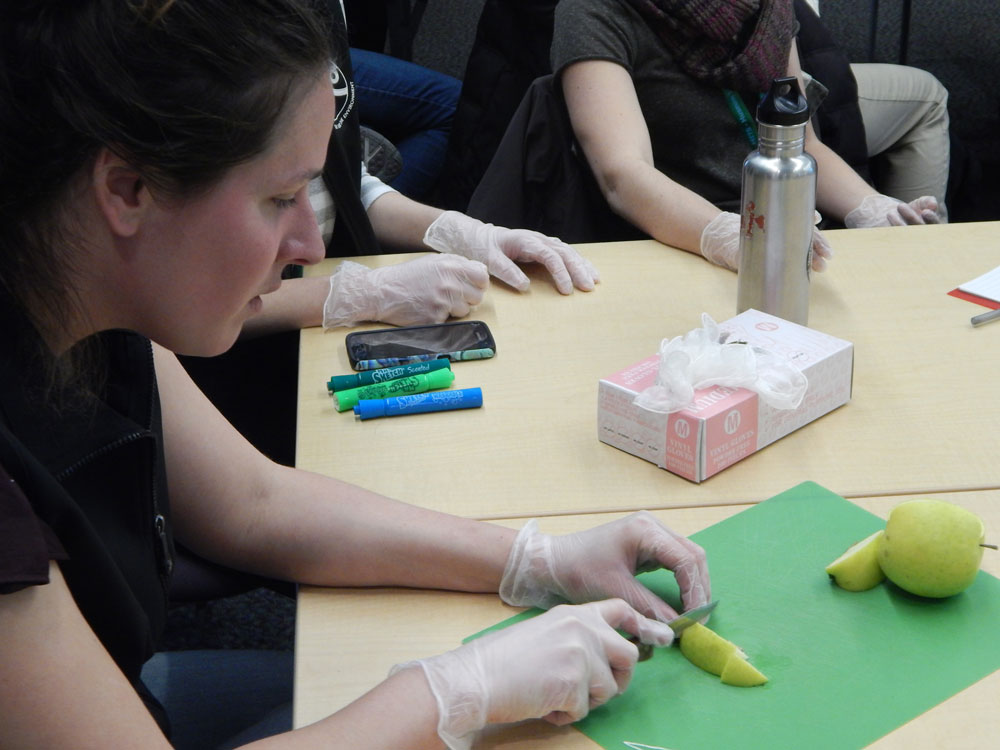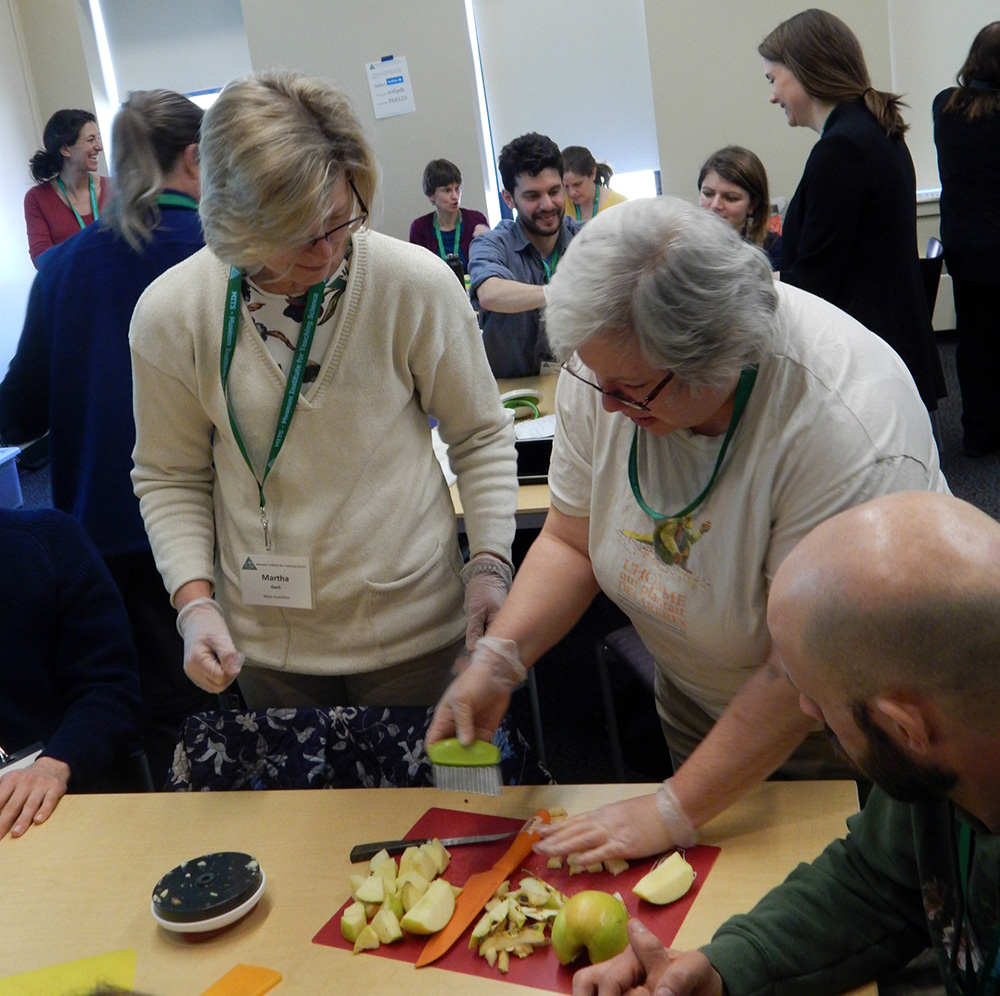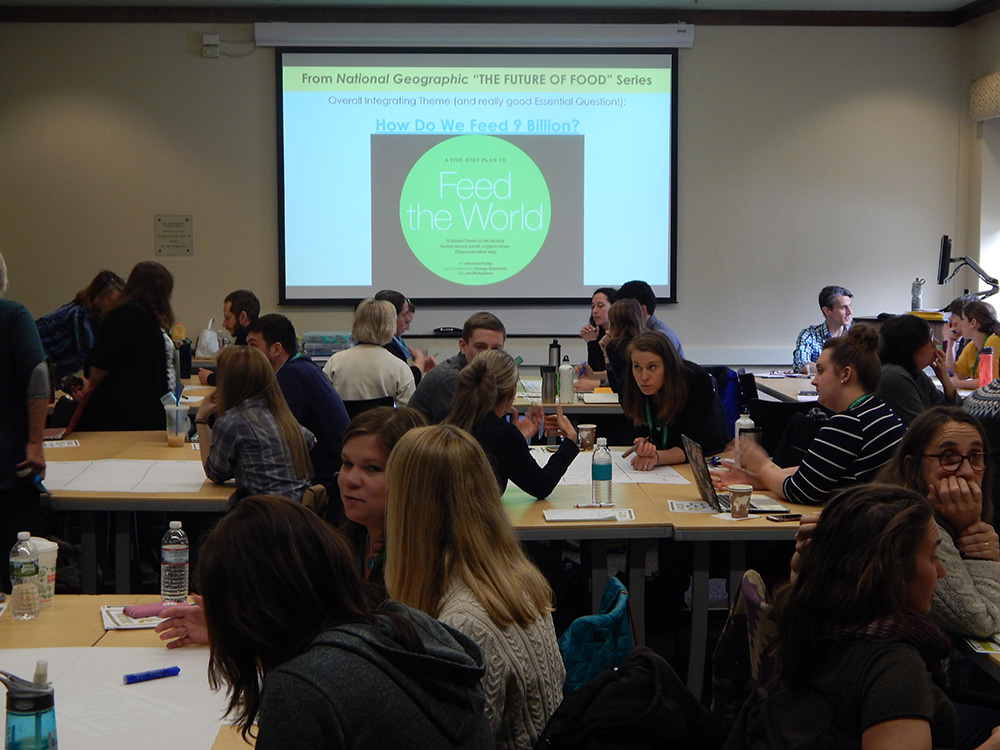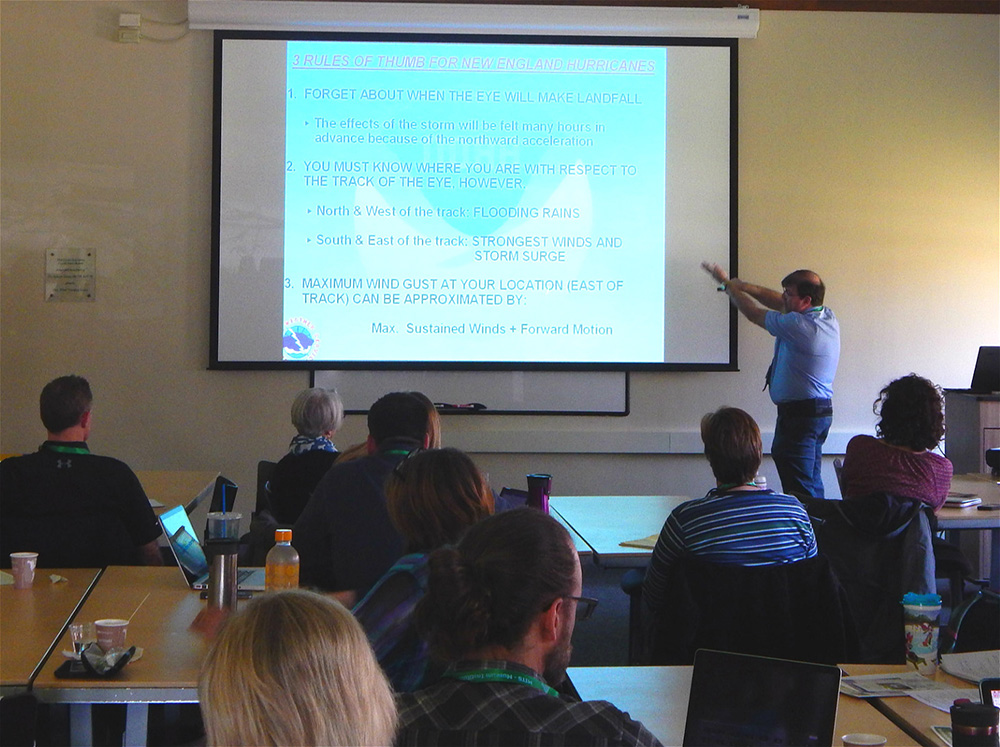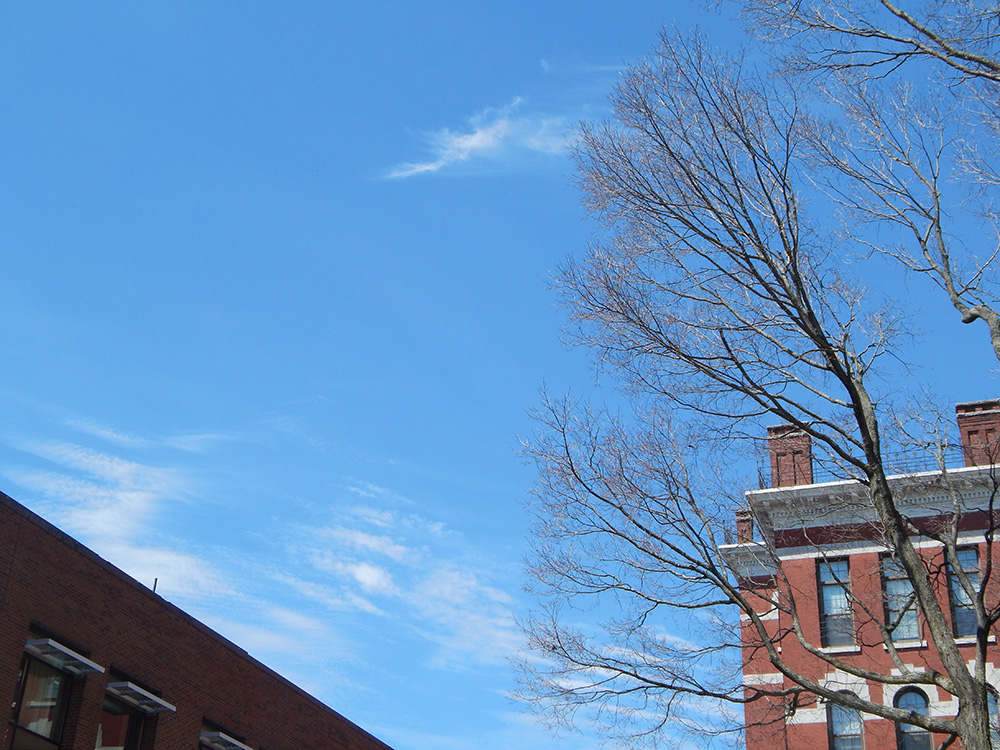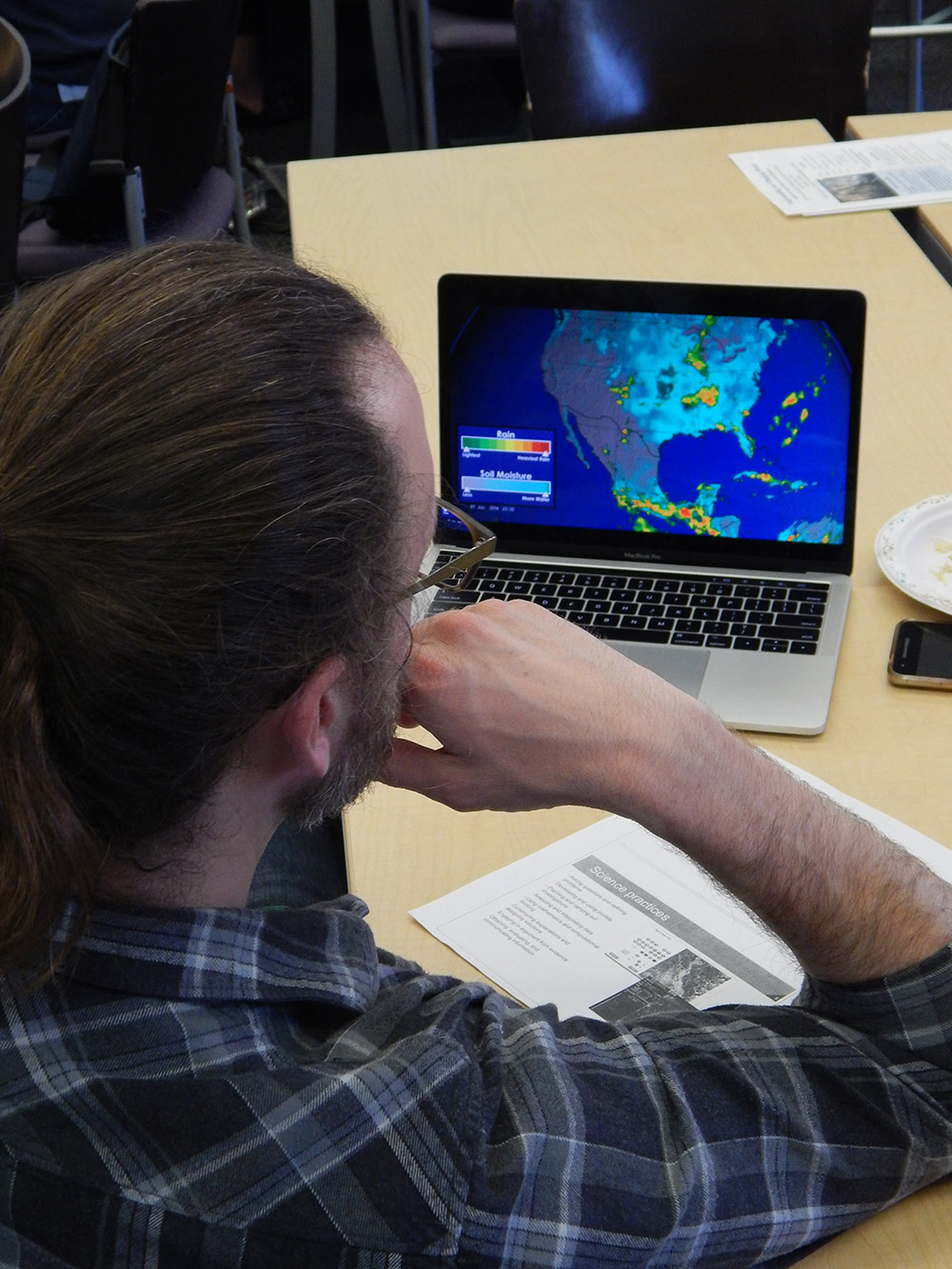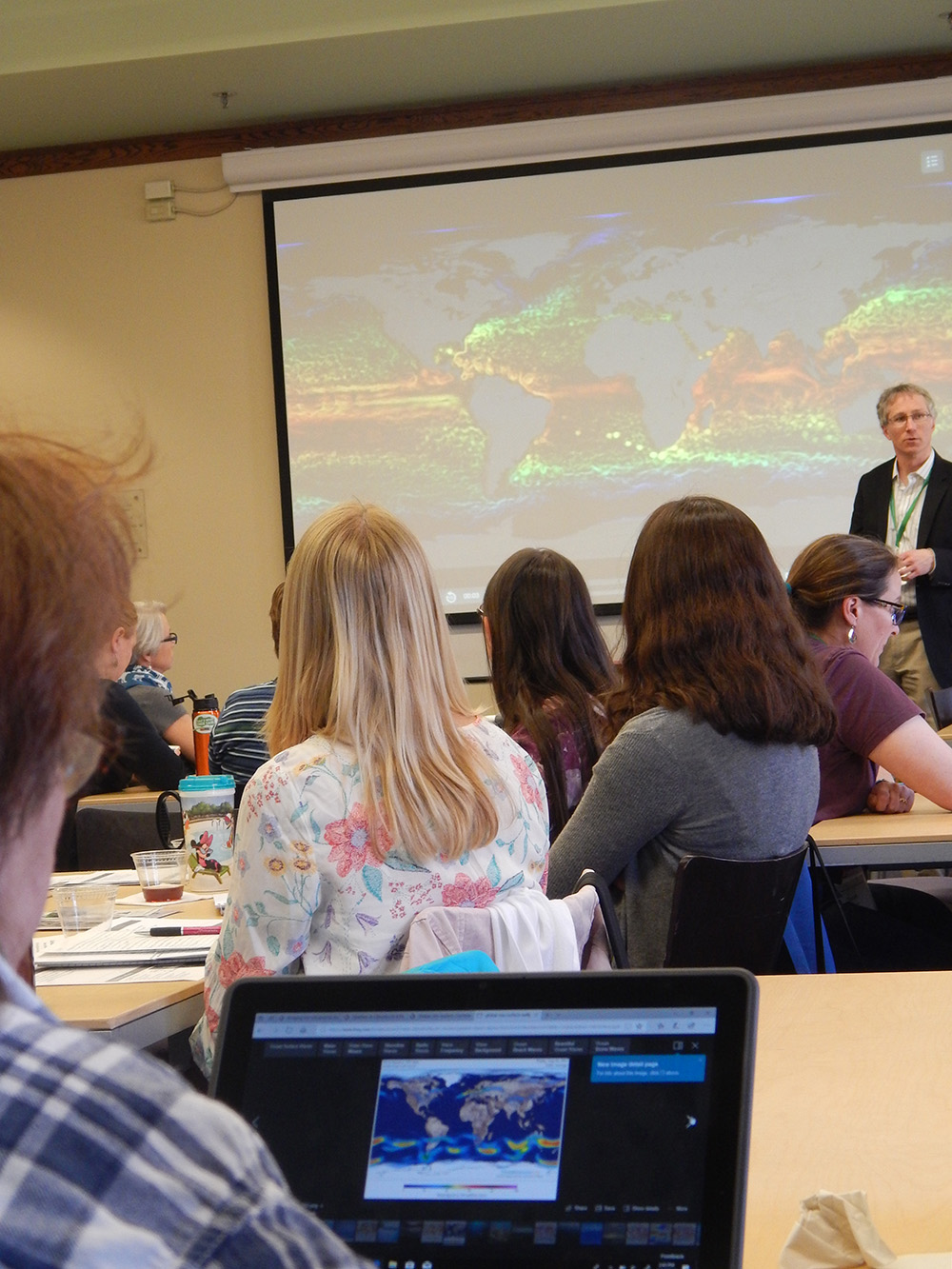Thanks for making the 2018 seminars a success! Please check back later this fall for information on our upcoming 2019 Professional Development Seminar series!
MITS’ Professional Development Seminar Series is designed for staff, volunteers and other professionals from science, environmental, natural history, technology, art, history and other cultural institutions and centers in New England. Typically, each seminar is a full day, split into two sessions. The mornings are spent exploring STEM content areas with scientists and policy makers. Afternoon sessions are skill-based, focusing on turning real-life science into exciting, inquiry-based, hands-on, minds-on lessons and activities for your programs with K-12 students and teachers, or other youth programs. The seminars are designed as professional development opportunities to provide content and teaching resources for your staff as well as networking opportunities for professionals in informal education settings. Teachers, science coordinators and other formal educators are also welcome to attend these seminars.
This year we offered four seminars – January 24th, February 14th and April 24th consisted of seminars in the traditional morning/afternoon format, and on March 28th we held a special full-day session. All four seminars provided exciting, hands-on professional development opportunities for our participants!
Download a Brochure
Wednesday, January 24th
Extreme Events and Climate Change: What We Know and Some Ideas About What to Do About It
Ellen Marie Douglas, Associate Professor of Hydrology, School for the Environment, University of Massachusetts Boston
Climate science tells us three truths about what we can expect from climate change. The first: small changes in an average value, such as average global temperatures, will have bigger effects on the extremes. We have seen this truth play out in the extreme weather events that have wrought havoc across New England and the nation over the last decade or more. Record-breaking events will always occur, but the time between these
events should increase. Under climate change, records are getting broken in…well, record time! The second truth: our history of CO2 emissions has embedded a certain amount of change into the climate system, which we will need to adapt to. And the third truth: if we don’t account for our changing climate in planning and designing, our plans and designs will be wrong. In this seminar, Dr. Douglas presented observations of our changing climate, what may be in our future here in New England and some plans for how to adapt to these changes.
How We Know What We Know: Using Real-World Data to Explore Key Climate Concepts
Jeremy D. Shakun, Assistant Professor, Dept. of Earth & Environmental Sciences, Boston College
How can you put scientific data to use in your school or public programs? In this seminar, educators worked in small groups to compare real-world results to their expectations based on a climate change hypothesis. They used models to show how random year-to-year weather variations can change how a trend is perceived, and considered how climate change will evolve over time. Educators calculated how the likelihood of an extreme weather event changes with a warming climate. Participants gained ideas for incorporating science and engineering practices like analyzing data and arguing from evidence into programs and exhibits at their institutions.
Wednesday, February 14th
Sharing Science: Connecting Scientists and Engineers with the Public
Denise LeBlanc, Director of Learning Experiences, The Discovery Museums, Acton, MA
Elizabeth Leahey, Assistant Director of Learning Experiences, The Discovery Museums, Acton, MA
Lindsay Mehrmanesh, Biology Teaching Lab Supervisor, Brandeis University
Now more than ever, connecting the public with the talented, dedicated and diverse men and women who do science and engineering is vitally important to promote appreciation and understanding of science and technology. Educators gained ideas for fostering one-on-one interactions between science/engineering professionals and the visitor/school programs at their own institutions, with the goal of inspiring a public full of curious, confident and enthusiastic science learners. Participants were introduced to The Discovery Museums’ Science & Engineering Communication Fellowship program, part of the national Portal to the Public network, which was designed to help research scientists learn how to communicate their research effectively to the public and create activities to engage learners with their research. During this seminar, educators engaged in sample professional development activities used by museum staff with fellowship participants, and learned about some of the unique and successful programs developed by the Fellows across a range of disciplines – from neuroscience to condensed matter physics.
Our morning presenter, Dr. Lindsay Mehrmanesh, shared the activity she developed as a participant in The Discovery Museums’ program, and illustrated how educators might bring the work of research scientists into their institutions. A molecular biologist, Dr. Mehrmanesh used models and an engaging “super-taster” activity to showcase her research with DNA.
Wednesday, March 28th
Dig In: Strengthening Sustainability Learning Through Farm-to-School Connections
Through this seminar, educators learned more about the science behind sustainable farming practices and new technologies that are helping small farms revitalize and provide local, high-quality food in an economically sustainable way. With presenters fromVermont FEED (Food Education Every Day) and Massachusetts Farm to School, participants discovered how to develop sustainability programs that offer a tangible, integrative and relevant learning experience through deep exploration of the interconnected food system. Through this seminar, educators learned more about the science behind sustainable farming practices and new technologies that are helping small farms revitalize and provide local, high-quality food in an economically sustainable way. With presenters fromVermont FEED (Food Education Every Day) and Massachusetts Farm to School, participants discovered how to develop sustainability programs that offer a tangible, integrative and relevant learning experience through deep exploration of the interconnected food system.
Tuesday, April 24th
The Technology, Data and People Behind Forecasting in the National Weather Service
Glenn Field, Warning Coordination Meteorologist, NOAA/National Weather Service, Boston, MA
The weather forecasting process begins with a large network of observations across a range of locations, from satellites 23,000 miles up in space to trained spotters on the ground. In this seminar, we peeked behind the scenes to see how technologies like weather balloons, buoys, automated sensors and Doppler radar are integrated into the forecasting process. Sophisticated numerical models, which take into account the laws of physics and thermodynamics, use collected data to simulate and predict the location and intensity of weather systems. We learned more about how meteorologists at the National Weather Service interpret the models’ predictions and apply their own local expertise to fine-tune the information and produce “weather grids” for Southern New England. The information is then disseminated to the public via television and radio meteorologists, the NWS website, social media and other private weather services. Our participants explored the variety of New England weather phenomena and took a look back at evidence of some of the big storms that have had an impact in our area. After all, it’s been 64 years since we have been hit by a major (Category 3) hurricane!
Engaging Students with Weather & Climate Through Media
Jake Foster, Director, STEM Curriculum and Instruction, WGBH
It never rains when you want it to! Unpredictable conditions and the scale of weather and climate phenomena can make it difficult to engage participants in direct observations of these phenomena. In this resource-filled seminar, we experienced strategies for using media to engage students in learning about weather and climate concepts. Different types of media, including imagery, videos to support observation or explanation and data visualizations are effective ways to bring weather and climate phenomena to students. We explored different media types and considered pedagogical strategies that encourage science practices through media use, and our participants walked away with an appreciation for how the Next Generation Science Standards sequence weather and climate expectations across grades K-12.

